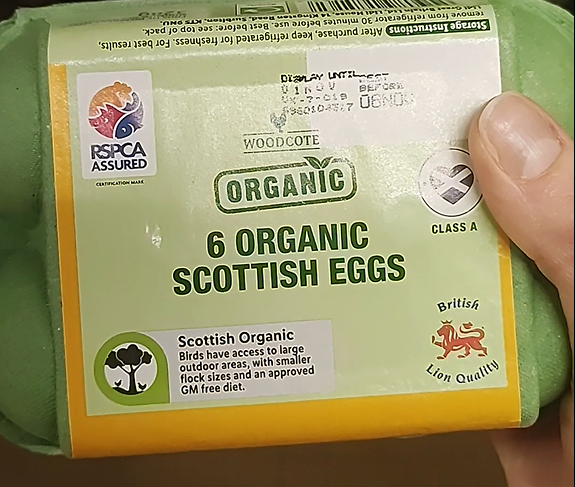Love What You Eat: The 3Rs
Here's how to reduce your animal product consumption without the guilt, judgment, or social awkwardness.
The Problem with "Just Eat Less Meat"
We've all heard the mantra: “reduce your meat consumption”. Climate scientists say it, animal welfare charities campaign for it, and your environmentally-conscious friend definitely mentions it at dinner parties (I might be that friend). But here's the thing - no one wants to be told to do anything, so telling someone to "eat less meat" without offering them a practical framework is like saying “you should lift weights" without at least sharing the basics of where to start if they’re open to the idea to begin with.
The current approach isn't working, because there isn’t one. Vegan restaurants are closing because most plant-based eaters aren't surrounded by exclusively vegan social circles. The RSPCA's "Eat Less, Eat Better" slogan at face value feels as loaded with judgment as Kate Moss' infamous "nothing tastes as good as skinny feels" quip.
Identifying as "vegan," or "plant-based" can still leave people feeling socially awkward or boxed in long-term, especially if the going gets tough on their health. Even the hard-core vegans need access to a ‘golden bridge’ to retreat if a health prognosis makes it unsustainable.
What we need is a flexible framework that works within your actual life - something that still has a foundation, but is non-judgemental of your ethics, health or budget. Just leaving people to “get on with it” when we face a looming food security crisis triggered by crop failure or the next pandemic is irresponsible - and the last thing anyone wants is the government rationing your chicken portions because it was left too late.
Enter the 3Rs: Reduce, Raise, Replace
I've adapted a framework from the animal research field that's designed to minimise harm while maximising practical outcomes. In animal testing, the 3Rs (Replacement, Reduction and Refinement) help researchers get meaningful data while mitigating the negative impact on animal welfare if applied correctly.
The same logic works brilliantly for food choices!
Here's how it translates to what's on your plate:
Reduce: Cut Back Where It's Easy
This isn't about eliminating entire food groups or ingredients. Instead, ask yourself: Where can I reduce either the volume of animal products I eat, or how often I buy them?
Maybe you always have chicken or beef when you make burrito bowls, but realise you can keep the protein content high and reduce cost, just by swapping half the meat for some spicy black beans.
Or you discover you don't actually need bacon every time you cook breakfast or brunch at the weekend - but save it as a treat if you eat the same things out in town. Small, consistent changes add up without feeling like deprivation, and feel more rewarding when you savour them later.
Raise: Upgrade When You Do Buy
Switching to organic eggs is an accessible example - it's a relatively small price jump (and varies by supermarket) that makes a significant welfare difference.
If reducing consumption isn't for you right now, focus on raising the quality of what you're already buying. This means paying attention to welfare labels and “buying the best you can afford” where possible.
Even upgrading your usual chicken to ‘slow-growing’ breeds, or your pork sausages to organic or ‘outdoor-reared’ contributes to a better welfare environment for the animals involved. It won’t fix factory farming overnight, but it’s a start!
Replace: Smart Swaps for Processed Foods
When upgrading quality isn't financially accessible (and for many, it isn't), strategic replacement works wonders. The key is targeting ingredients that can be masked well in a dish, like a curry or stew (like this Louisiana style Gumbo) rather than trying to replicate a meal where meat is the stand-out ingredient, like a steak dinner or Sunday roast.
Think about the powder or milk in your protein shakes, or those cheeky weeknight nuggets. These are perfect candidates for swapping to plant-based alternatives because they're easy to access and still do the same thing, whether that’s refuel after a heavy gym session, or be the vehicle for your favourite hot sauce. You don’t have to stop enjoying these things.
Why This Framework Actually Works
Unlike rigid labels that try to fit you in a neat little box, the 3Rs give you options based on your current circumstances. Is your budget a bit tighter this month? Focus on Reducing your meat portion sizes or number of meals with meat in. Can’t say no to eating eggs every weekend? Raise your weekly purchase to organic. There are so many examples to play with.
The beauty is in the flexibility. If you are consistently making conscious choices based on your values and within your real constraints, how and what you eat may look different depending on the month, year or life stage you’re in.
Being consistent enough, whilst giving yourself a little grace along the way and being open to trying things gradually is the surest way of sustaining these habits in the long-term. You’re not betraying your ethics if you occasionally eat meat on a night out, and you're not failing if you can't afford to buy organic chicken with every weekly shop, even if you care about animal welfare.
This approach also works socially. You can experiment with new products and ingredients alongside other omnivores without anyone feeling judged or preached at. You don’t have to justify it, and there’ll be no awkward dietary announcements at restaurants. You can just enjoy dabbling with the framework until something you enjoy sticks and becomes a habit.
Where You Stand Matters
The most important step is figuring out where you currently sit with eating animal products and what matters most to you. Are you willing to try alternative proteins but uncertain about their health claims? Or perhaps you’re curious about new products but sceptical about taste and price?
Maybe you’re passionate about welfare and sustainability but not ready to give up certain foods entirely? Whatever your reasons, understanding your starting point helps you choose which of the 3Rs is the easiest barrier to entry.
Try It Out
Adopting the 3Rs isn’t about achieving dietary and moral perfection; rather, building habits that last and become second nature. Whether you end up reducing your animal product consumption by 20% or 80% (like I have over the past eight years), what matters is that you've found a sustainable approach that works within your life, not against it.
Ready to discover where you fit in this framework? I've created a data-informed quiz to help you identify your Protein Personality Type. Your results will show you what your current priorities are, along with tailored tips that align with your values and habits.
Because ultimately, the goal isn't to judge what's on your plate - it's to love what you eat while making choices that nudge us all forward to a more sustainable, brighter future for ourselves, animals and the food systems we rely upon.
Remember: eat what you love, and love what you eat.



